I am also ready to declare that Portugal is the only other developed country besides the USA that suffers urban flight (there is a good amount gentrification). I am grappling for reasons. Portugal certainly is not the least developed country we have been in Europe; Portugal's birth rate cannot be that different from the European average; emigration is not among the highest either....The other common theme of all cities we have visited is that every single one of them is built in serious hill(s), as in stairs and switchbacks. Could the two be related?
I did enjoy seeing the Roman ruins at Conimbriga. I have to confess that I did not start out nearly as big a fan of archaeology sites as John. The more we visit, more I am interested. In Coimbra, he Roman crypto-pórtico at the Machado de Castro Museum I have now seen, but still could not believe.
Coimbra - on the river with the University on top of the hill.
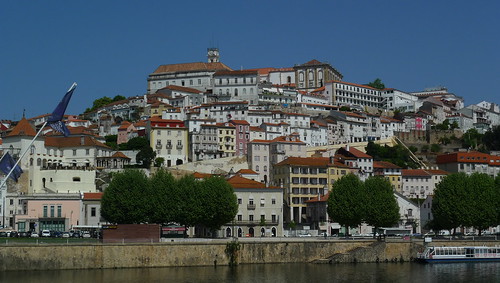
Not much happening on the main drag.
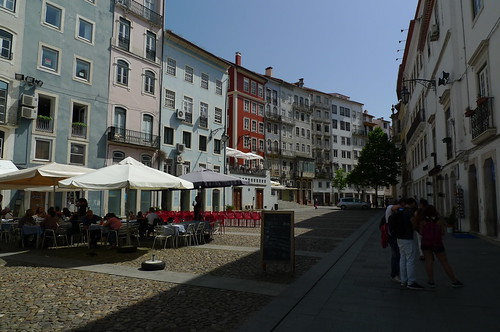
At Santa Cruz, one could make a small donation and then wander around behind the altar and into the sacristy and chapels, so we did.
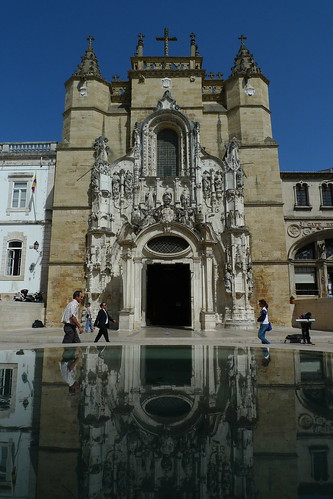
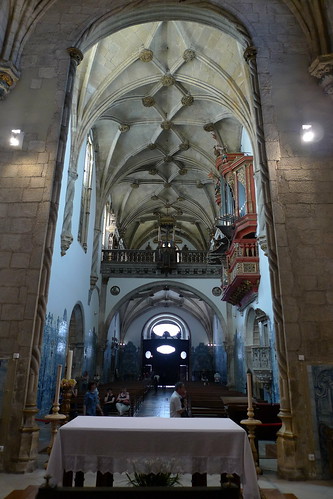
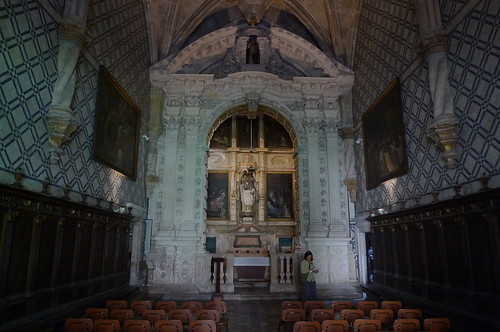
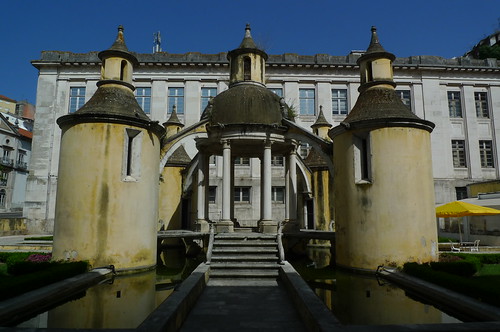
We rode the funicular up to the University.
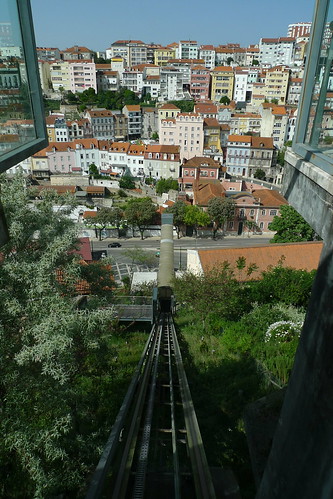
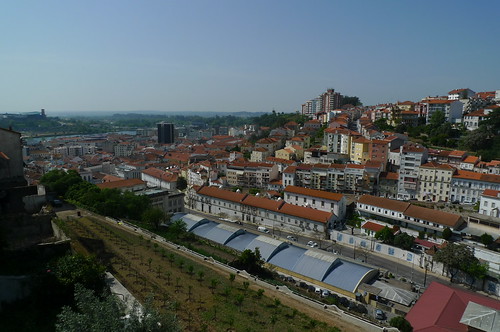
The old gate to the old part of the University.
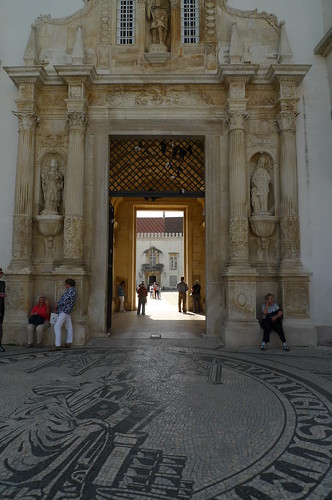
Not much was happening at the University except for soon-to-be-graduates tossing their capes for photos.
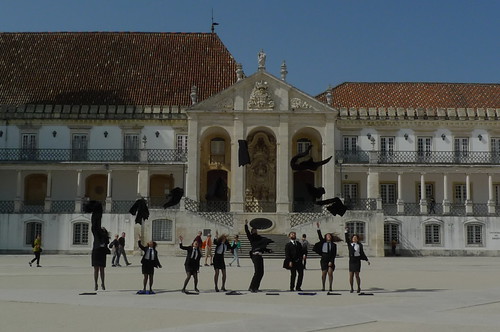

The Old Cathedral is impressive.
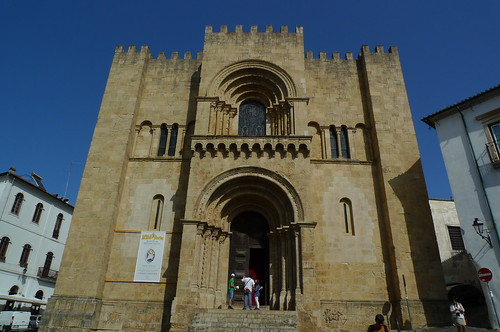
Day Two we rode the bus out to the Roman Ruins at Conimbriga; about 15 kms from Coimbra. Impressive ruins and a very good job IMO reconstructing the Palaestra (Wrestling School) and Forum. This first pic is ruins of a house.
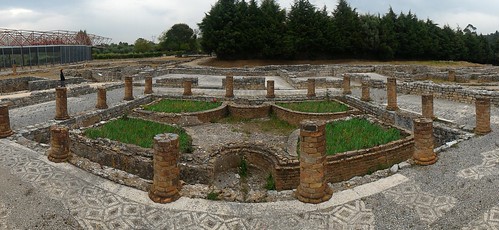
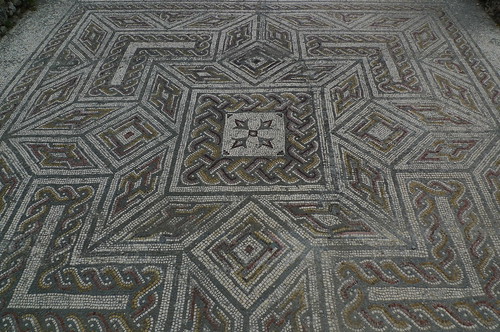
The cold water pool at the Palaestra. Resembles a modern day swimming pool, no?
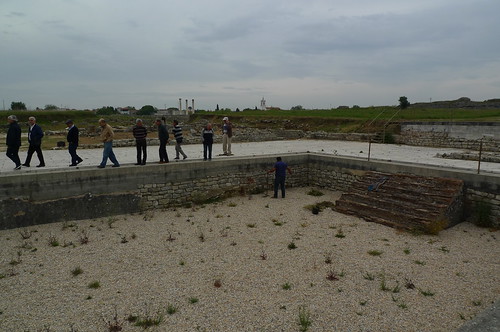
The Palaestra was on a ravine - great setting.

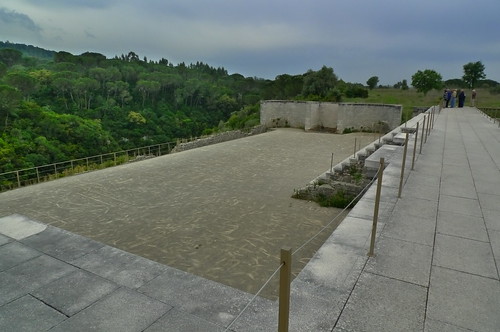
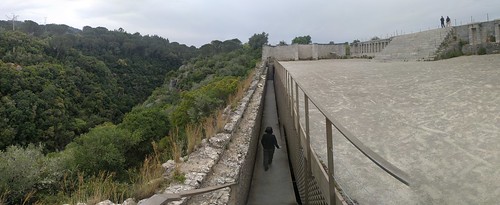
The partially reconstructed forum sits on top of pre-Roman ruins which can be seen underneath.
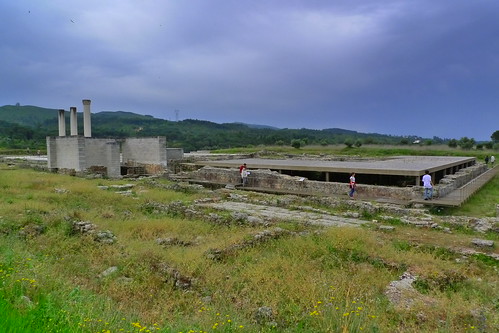
This is not a Roman Theater. The seats are purely contemporary. It is the waterworks at the terminus of the aqueduct.
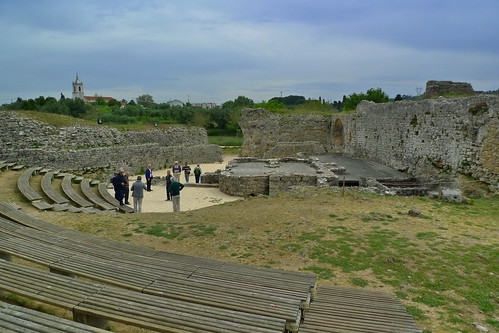
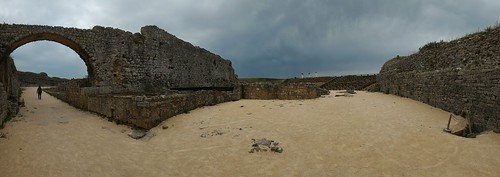
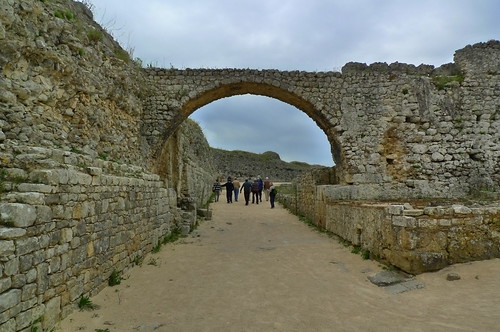
More peristyle buildings.
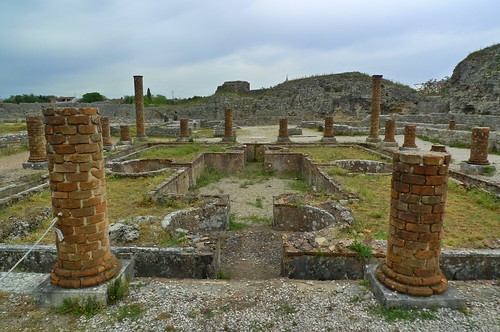
And finally the very impressive so-called House of the Fountain.
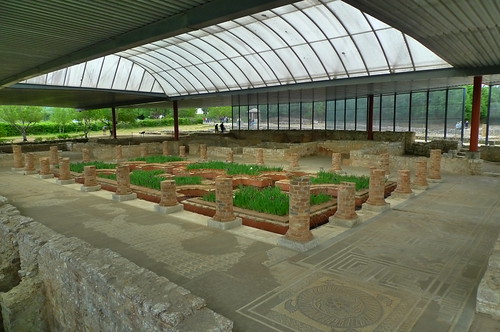
The garden, edged with a line of small water jets, was restored in 1991.
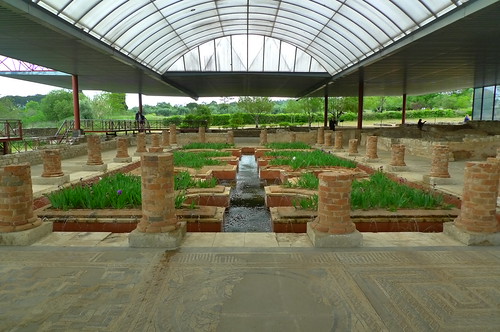
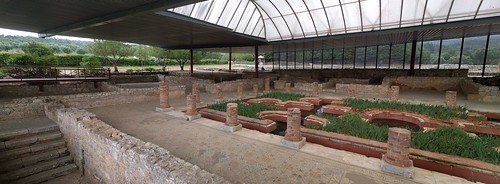
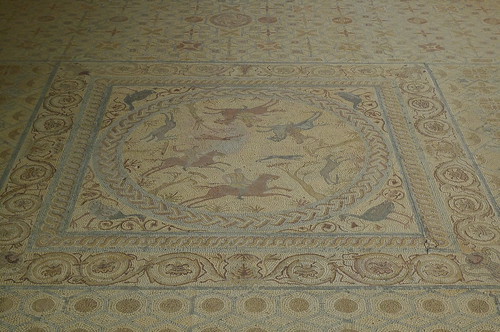
The site museum is included in the admission and is worth a visit since all the artifacts from the site are there.
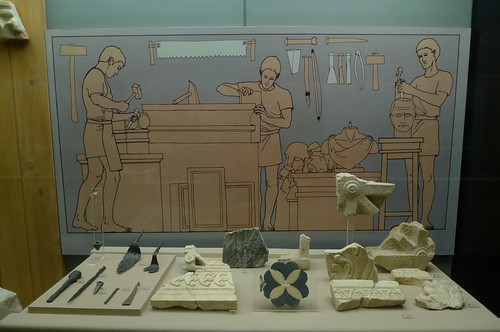
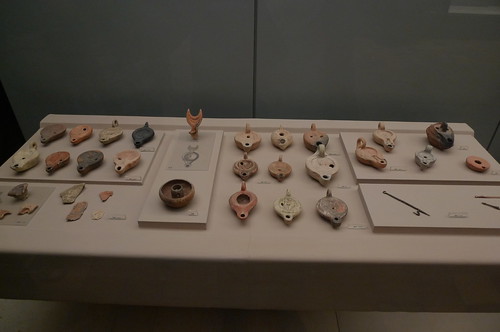
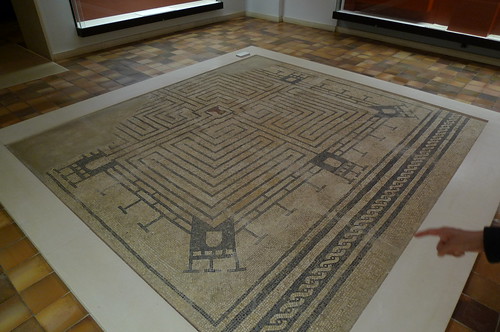
The National Museum Machado de Castro in Coimbra is located in the former Bishop's Palace which was built on top of the ancient Roman Forum. It's an amazing place. Built on the side of the hill, the lower two floors are the almost intact lower corridors of the Roman Forum - the Crypto-Portico. The other 3 or 4 floors are the Art Museum with 2 floors of sculpture that will NOT put you to sleep or make your head spin.
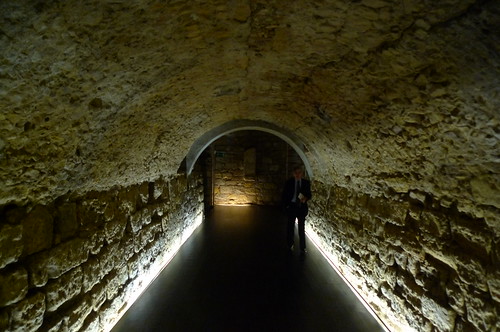
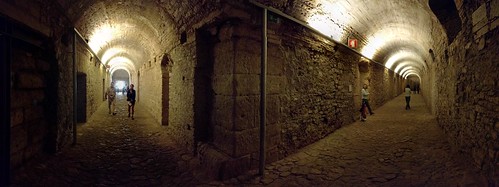
Coimbra was known for its sculpture.
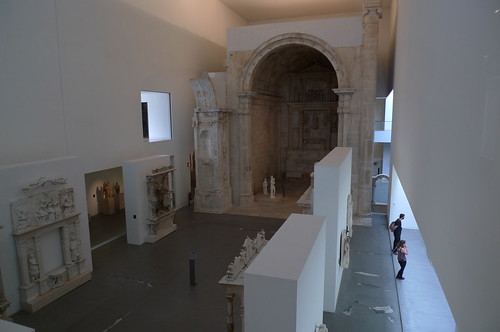
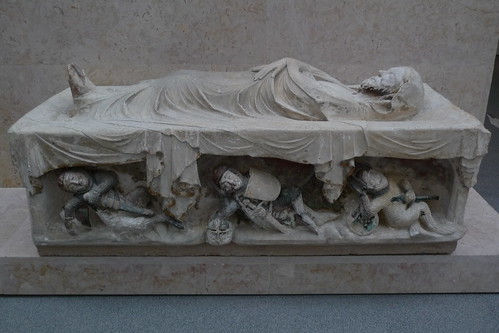

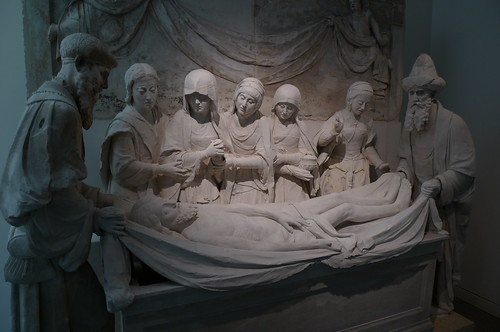
Terracotta Last Supper.
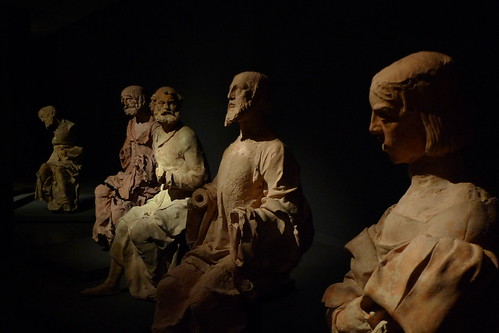
Near our apartment.
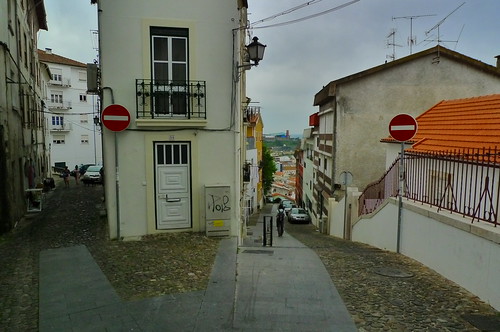
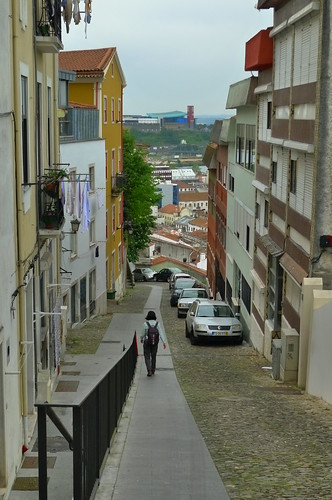
We discovered lupins in Coimbra; yellow beans/peas that are similar to soybeans and taste great with a cold beer.
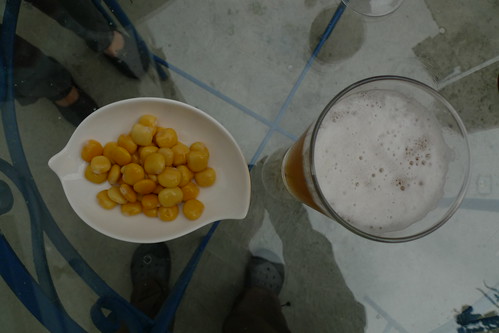
Some night shots. The main drag shuts down early.
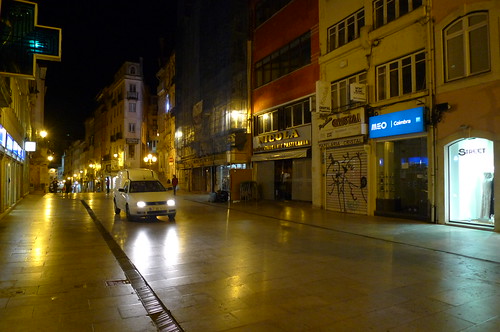
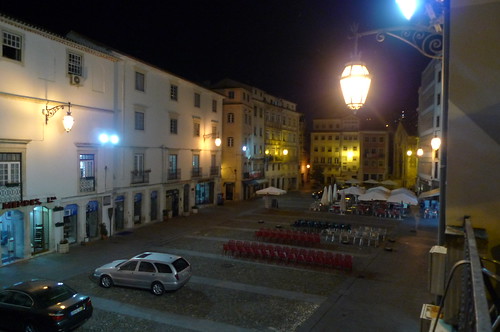
Day Three: We had an afternoon bus, so in the morning we visited the Botany Department and the Botanic Gardens (located next to Coimbra's aqueduct) where students were again throwing their capes.
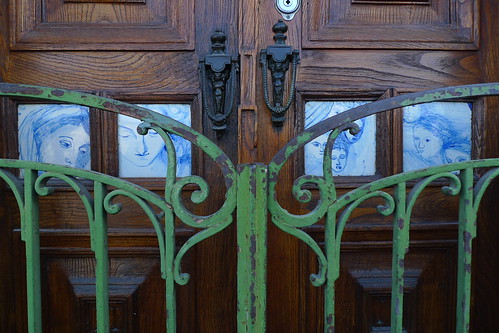
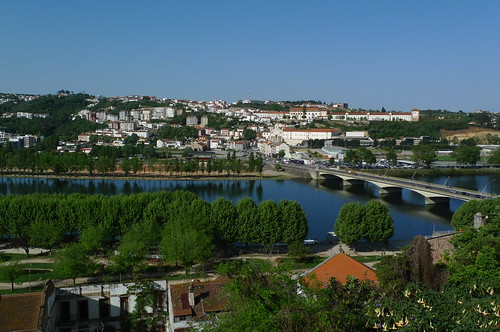
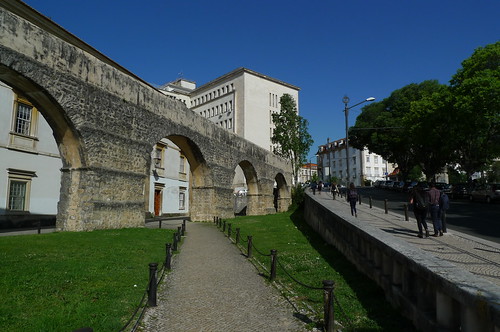
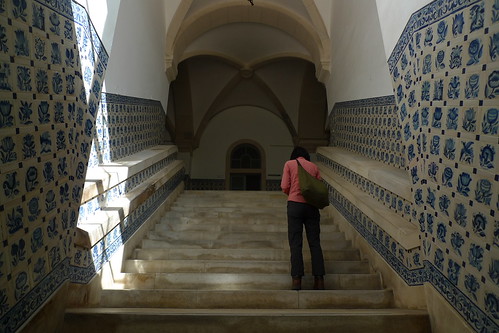
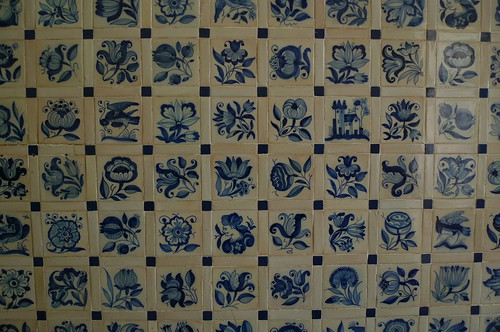
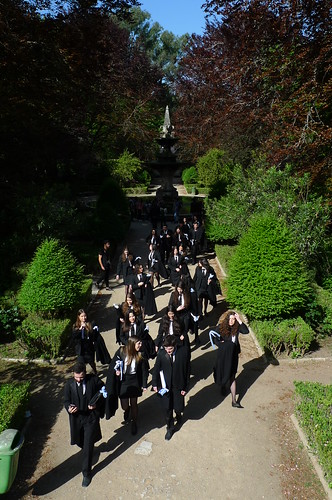
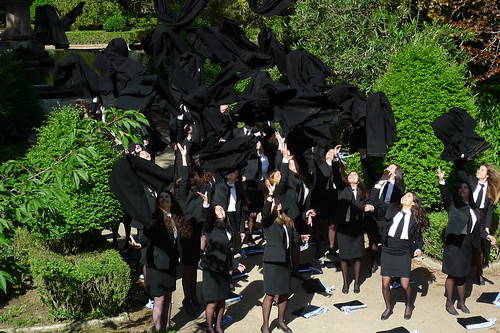
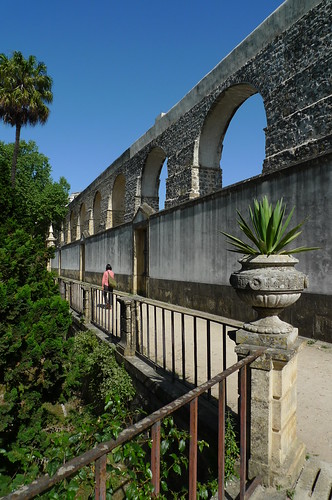
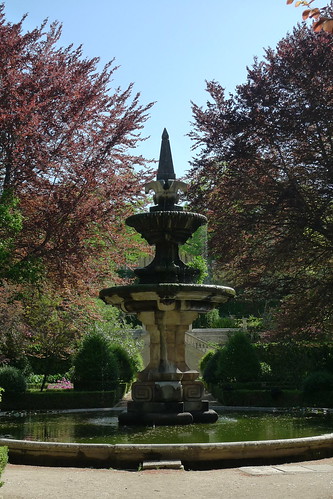
And lastly, the volunteer fire department building.

No limit to what you two find. Admittedly, Portugal is not on my visitation radar but you sure have uncovered many lovely features.
ReplyDeleteA tourist office happened to mention to us that they think there are a lot of tourists in Portugal because people are going to France. We also had a German couple tell that they were in Spain because Turkey is not safe. Interesting how losers and winners are created.
ReplyDelete